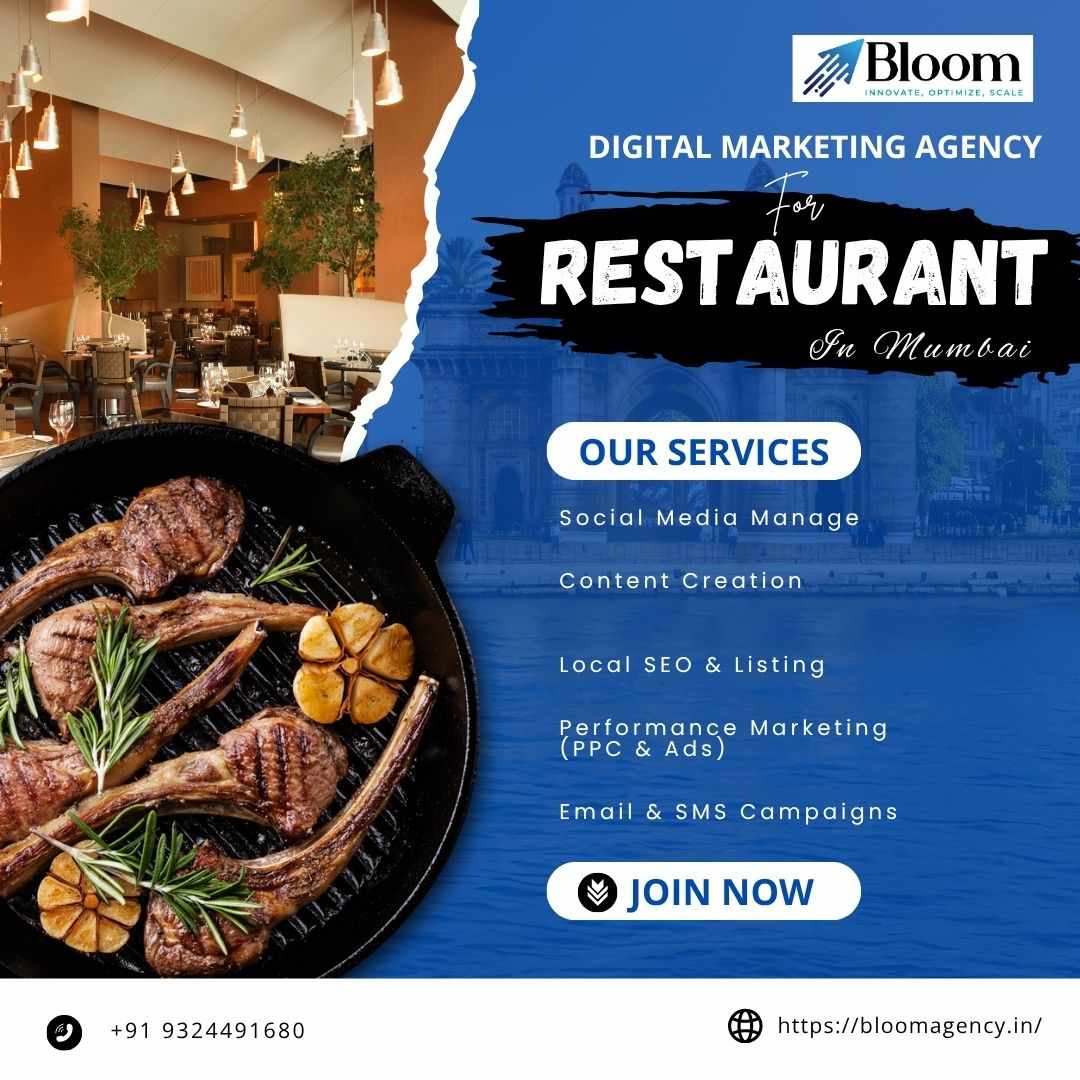
Restaurant Branding Agency: Crafting Unique Identities in a Competitive Food Industry
The restaurant industry is one of the most vibrant yet fiercely competitive sectors globally. With an explosion of food outlets, cafes, and fine dining experiences, standing out requires more than just delicious food. It demands a strong, memorable brand identity that resonates with customers on emotional and experiential levels.
This is where a Restaurant Branding Agency comes into the picture. These specialized agencies help restaurants define, communicate, and grow their brand identities across every touchpoint — from the logo and interior design to digital presence and customer interactions.
In this article, we delve into the role of restaurant branding agencies, why branding is crucial for restaurants, the core services offered, challenges faced, and key elements that drive successful restaurant brands.
What Is a Restaurant Branding Agency?
A restaurant branding agency is a creative and strategic consultancy that focuses exclusively on branding needs of restaurants, cafes, bars, and food outlets. Unlike general branding firms, these agencies understand the unique dynamics of the food and hospitality industry, including customer psychology, cultural trends, and operational nuances.
They collaborate closely with restaurant owners, chefs, and marketing teams to craft a cohesive brand identity that can influence customer perception, loyalty, and ultimately, business growth.
Why Is Branding Important for Restaurants?
1. Differentiation in a Crowded Market
Thousands of new restaurants open every year. Many serve similar cuisines or concepts. A compelling brand identity helps a restaurant carve a unique space in customers’ minds — making them choose it over competitors.
2. Emotional Connection and Loyalty
Food is deeply tied to emotions and experiences. Strong branding taps into this connection by telling stories, evoking feelings, and creating memorable experiences that keep customers coming back.
3. Consistency Across Touchpoints
From the moment a customer sees the restaurant’s logo on a social media post to the ambience inside, consistent branding builds trust and recognition. It assures customers of quality and reliability.
4. Price Justification
A well-branded restaurant can command premium pricing because customers perceive added value in the experience and quality offered.
5. Effective Marketing
Branding provides a foundation for marketing efforts, making campaigns more cohesive, targeted, and impactful.
Core Services Provided by Restaurant Branding Agencies
1. Brand Strategy Development
This involves researching the market, competition, and target audience to create a brand positioning statement. The agency defines the restaurant’s:
Mission and vision
Brand values and personality
Unique selling propositions (USPs)
Target customer personas
2. Visual Identity Design
Creating the visual elements that represent the brand:
Logo design
Color palette and typography
Menu design and layout
Packaging design (for takeout and delivery)
Signage and interior branding elements
3. Brand Voice and Messaging
Developing the tone and style of communication that reflects the brand’s personality, used in:
Website copy
Social media posts
Customer interactions
Advertising campaigns
4. Digital Branding
Establishing a strong online presence through:
Website design and development
Social media branding
Email marketing templates
Online reputation management
5. Environmental and Experiential Branding
Shaping the physical space and customer experience with:
Interior design consultancy
Staff uniforms and service style
Music and lighting recommendations
Event and theme development
Unique Challenges in Restaurant Branding
⚠️ 1. Balancing Creativity and Practicality
Branding must be imaginative yet feasible for daily operations. For instance, a visually stunning menu design should still be easy to read and update.
⚠️ 2. Capturing Culinary Essence
The brand identity must authentically reflect the cuisine and culinary philosophy, whether it’s traditional, fusion, fine dining, or casual fast food.
⚠️ 3. Evolving Customer Preferences
Food trends and customer expectations change rapidly. Branding must be adaptable while maintaining core identity.
⚠️ 4. Multi-Channel Consistency
Maintaining brand consistency across offline dining, online ordering platforms, social media, and delivery services requires meticulous coordination.
Key Elements of Successful Restaurant Branding
1. Authenticity
Customers crave authentic experiences. A brand that genuinely reflects the restaurant’s story, food, and values builds lasting connections.
2. Visual Impact
Memorable logos, appealing color schemes, and distinctive design elements create strong visual recall.
3. Emotional Engagement
Through storytelling, social responsibility initiatives, or community involvement, brands evoke emotions that turn first-time customers into loyal patrons.
4. Customer Experience Integration
Branding extends beyond visuals to every interaction — from how reservations are handled to the ambiance and staff behavior.
5. Adaptability
A strong brand evolves while preserving its core essence, ensuring relevance as the business grows or market trends shift.
The Branding Process: Step-by-Step
Discovery and Research
Understand the restaurant’s history, goals, market, and customers.Brand Positioning and Strategy
Define what sets the restaurant apart and how it will be perceived.Creative Concept Development
Draft initial logo ideas, color palettes, and messaging themes.Design and Content Creation
Finalize visual identity and create supporting materials like menus, websites, and signage.Implementation and Launch
Roll out branding across all channels and train staff to represent the brand consistently.Monitoring and Refinement
Gather feedback and adapt branding elements as necessary.
Case Study Snapshot (Hypothetical)
Imagine a mid-sized Indian restaurant aiming to attract millennial food lovers. A restaurant branding agency might:
Position the brand as “Modern Indian Flavors with a Global Twist”
Develop a vibrant, youthful logo using contemporary fonts and bright colors
Design menus emphasizing fusion dishes with engaging descriptions
Create a social media campaign highlighting chefs’ stories and ingredient sourcing
Suggest interior decor blending traditional art with modern minimalism
This cohesive branding could differentiate the restaurant, drive footfall, and build a loyal community.
Conclusion
In a competitive and ever-evolving food industry, a strong brand identity is crucial for restaurants seeking sustainable success. A Restaurant Branding Agency brings specialized expertise in understanding customer psychology, culinary culture, and market trends to create compelling brand experiences.
By investing in strategic branding, restaurants don’t just sell food—they create memorable experiences, emotional connections, and loyal communities that keep them thriving over time.




















Write a comment ...